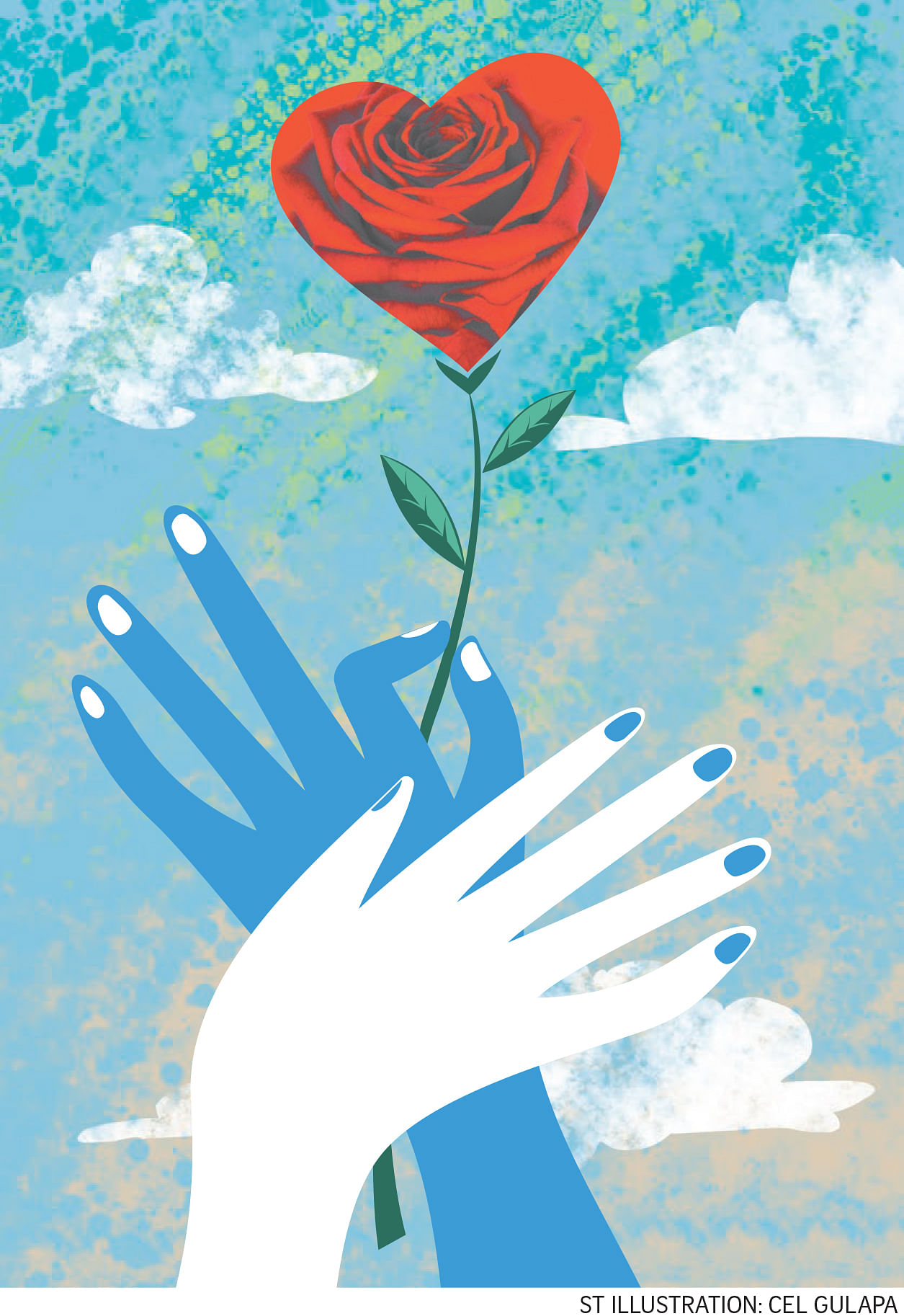You might have seen it on Facebook: a friend who's doing a 30-day "gratitude challenge", listing three things he is thankful for each day. It's for his mental health, he says. "Today, I'm thankful for the chicken rice downstairs, my stable Internet connection and having enough toilet paper to get through this pandemic."
During the coronavirus crisis, there has been a surge of interest in tips or hacks for improving mental health because people are finding themselves more isolated than before due to social-distancing measures.
So, you might go jogging once a day to keep up your physical health. Is the "gratitude challenge" the mental health equivalent?
MENTAL HEALTH IS FOR EVERYONE
Let's start with the elephant in the room. For many people, say the words "mental health" and what come to mind immediately are names of mental illnesses: depression, anxiety disorders, schizophrenia.
And then, there's the stigma associated with mental illness - it's not a subject for office conversation and definitely not for Chinese New Year gatherings. So what has gratitude got to do with anything?
Like many Singaporeans, those were my impressions of "mental health" growing up. Hence, I was intrigued when I first found out about the growing branch of psychology known as positive psychology in the course of my work as a medical ethics researcher.
Adherents of positive psychology say we can't just look at mental illness on its own and we need to find out how to make use of, and promote, the positive side of mental health. Why not study concepts like flourishing, resilience, curiosity and, yes, gratitude, they suggest.
Additionally, many argue that the absence of mental illness does not equate to having a healthy mind.
Someone might struggle with self-acceptance or feel that life is incoherent, while being quite far from a clinical diagnosis of mental illness.
That means nobody is excluded from mental health concerns. Why should there be a stigma?

THE IMPORTANCE OF GRATITUDE
It's not clear why, but gratitude has emerged as the most significant - or at any rate, the most commonly studied - trait in positive psychology. There are scores of scientific articles about its impact on well-being, depressive symptoms and other psychological factors.
And one thing about gratitude is that it's easy to translate into a healthcare intervention: Think of gratitude lists, diaries, letters or phone calls. That's why it has even become somewhat mainstream on social media.
But do things like the "gratitude challenge" actually work?
It's hard to say for sure. It's certainly not the solution to all mental health problems and, at this point, the scientific evidence that positive psychology interventions can improve mental health is still fairly modest. But there are promising signs. Practising gratitude in one form or another has been known to help with levels of stress and anxiety or in discouraging body dissatisfaction.
It's not hard to imagine why gratitude can be such a powerful ally in promoting mental health. It makes us think and respond in a relational way.
For example, gratitude means we don't see our achievements as merely our own and perhaps we'll be less hard on ourselves when things go wrong. We don't think the world owes us a living and therefore acts of kindness spur deeper friendships.
Grateful reflection on our life story can help in the search for coherence and mark the beginnings of seeing oneself as part of a bigger picture of goodwill and love.
GRATITUDE AS A NATION
Of course, feeling grateful can also be a short-term mood booster.
I experienced this recently in a particularly memorable way after more than two weeks of being in isolation with my family in our little flat in a suburb of Oxford.
One Thursday last month at 8pm, we participated in the Clap for Carers initiative. It called on the whole of Britain to give a round of applause from their windows, balconies or front doors at the exact same time, to thank all healthcare workers and other carers working tirelessly during this pandemic and to boost national morale.
Our whole neighbourhood came alive with a long standing ovation. Someone was even beating a frying pan like a drum.
I don't know if there were any doctors or nurses around us receiving our applause, but the mood in our flat was euphoric.
We felt like we were part of something greater than ourselves. The comparatively small sacrifice of staying at home for most of the day was put in its place.
Thinking about family and friends back home, I wondered afterwards what it would be like for whole blocks of HDB flats, with their hundreds of families, to burst into applause all at once, in gratitude for our healthcare workers and other front-line fighters in Singapore as part of the new Clap for #SGUnited campaign.
As we get used to staying at home during the circuit breaker, we'll find that practising gratitude is not as easy as some friends on Facebook might make it seem.
There's a lot of sad news in the papers. We have to be more attuned to the little things and use our imagination to be grateful for those whom we can't see, like a doctor treating a relative whom we can't visit.
But the "gratitude challenge" does teach us something valuable: Gratitude is more than a few short bursts of euphoria. Like your daily jog, it's something you have to keep up and - more than that - turn into a way of life.
• The author is a Singaporean researcher of philosophy and medical ethics based in Oxford.










